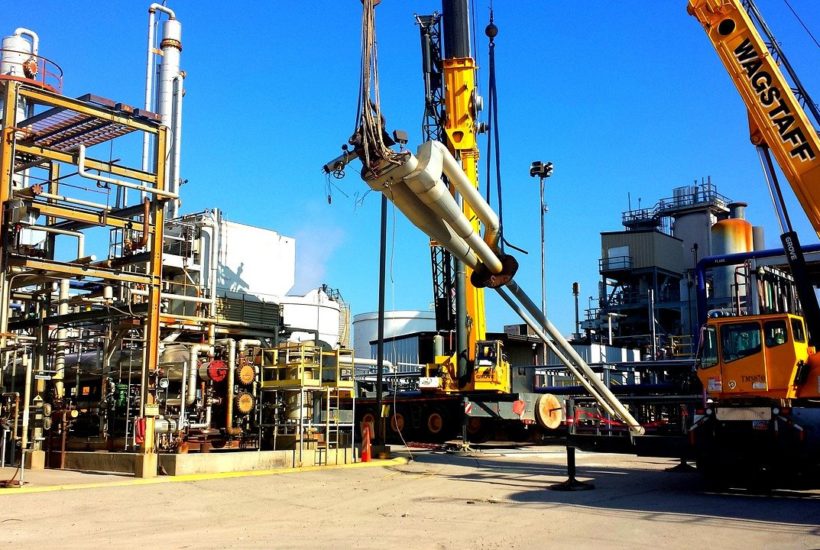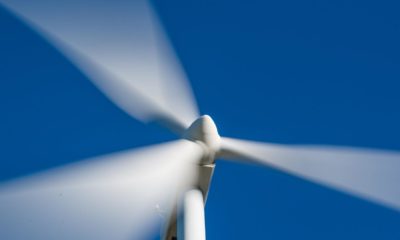Featured
Naturgy and Eni to share Union Fenosa Gas and seek to solve the dispute with Egypt
Naturgy and Eni are about to finalize an agreement with Egypt to resolve the conflict of the Damietta regasification plant. The two companies have already proposed a solution to the European Commission and it is expected that today, November 25th, the Council of Ministers of the country would take a decision on the proposal on the table and resolve this dispute definitively.

Naturgy and Eni broke the agreement they had with Egypt in the middle of the year because of the coronavirus. However, a few months ago, they have resumed contacts with the Egyptian government to try to reach a solution, as indicated by the Economist.
At the same time, this same week, progress is being made in the US justice system with the measures taken by Naturgy and Eni to try to collect the arbitration award that recognizes them as having a right to collect more than $2.6 billion (€2.2 billion), and there have been several court hearings.
Read more about the subject and find the most important energy and mining news with the best Mining News app.
In December of last year, UFG won the first lawsuit against Egas
The agreement that is being considered, and for which they have even already begun proceedings in Brussels, would mean the purchase by the Italian oil company of the Damietta regasification plant, and in exchange, Naturgy would receive financial compensation. The agreement would be similar to the one signed last February. The companies reached an agreement whereby Naturgy would receive around $892 million (€750 million). The Spanish company and ENI valued the company at $1.62 billion (€1.36 billion), of which $1.43 billion (€1.2 billion) corresponded to the assets in Egypt and the other $357 million (€300 million) to the rest of the world.
After the agreement, Naturgy was to receive a cash payment of $648 million (€545 million), as well as most of the assets outside Egypt, excluding the natural gas trading activities in Spain, which would remain in the hands of ENI, which in practice meant taking a 7.36% stake in the Qalhat liquefaction plant, in Oman, and the charter contracts for the Galicia Spirit and Cádiz Knutsen methane tankers. On the other hand, Eni kept the commercial business in Spain in order to avoid that the operation could have problems in Competition.
On February 27th, 2014, Unión Fenosa Gas presented the arbitration procedure through its law firm King & Spalding (which also worked with Gas Natural in the dispute it had with Algeria) and the case has continued. The company has filed a total of five claims: the first in Cairo (Egypt), the second at the International Centre for Settlement of Investment Disputes (ICSID) and the third in Madrid, which remains unresolved.
In December of last year, UFG won the first lawsuit, against Egas, which will have to pay it $7.14 million (€6 million) for interrupting the gas supply, and the second won it with the imposition of the $2 million (€1.7 million).
With the closing of this operation, if it is finally achieved now, the company will advance in the asset rotation plan that it plans to present next February and in which it has already divested itself of the business in Chile as well as the participation in four technological subsidiaries, as this newspaper advances today.
__
(Featured image by jp26jp via Pixabay)
DISCLAIMER: This article was written by a third party contributor and does not reflect the opinion of Born2Invest, its management, staff or its associates. Please review our disclaimer for more information.
This article may include forward-looking statements. These forward-looking statements generally are identified by the words “believe,” “project,” “estimate,” “become,” “plan,” “will,” and similar expressions. These forward-looking statements involve known and unknown risks as well as uncertainties, including those discussed in the following cautionary statements and elsewhere in this article and on this site. Although the Company may believe that its expectations are based on reasonable assumptions, the actual results that the Company may achieve may differ materially from any forward-looking statements, which reflect the opinions of the management of the Company only as of the date hereof. Additionally, please make sure to read these important disclosures.
First published in elEconomista.es, a third-party contributor translated and adapted the article from the original. In case of discrepancy, the original will prevail.
Although we made reasonable efforts to provide accurate translations, some parts may be incorrect. Born2Invest assumes no responsibility for errors, omissions or ambiguities in the translations provided on this website. Any person or entity relying on translated content does so at their own risk. Born2Invest is not responsible for losses caused by such reliance on the accuracy or reliability of translated information. If you wish to report an error or inaccuracy in the translation, we encourage you to contact us.

-

 Markets2 weeks ago
Markets2 weeks agoThe Big Beautiful Bill: Market Highs Mask Debt and Divergence
-

 Africa2 days ago
Africa2 days agoORA Technologies Secures $7.5M from Local Investors, Boosting Morocco’s Tech Independence
-

 Markets1 week ago
Markets1 week agoA Chaotic, But Good Stock Market Halfway Through 2025
-

 Business4 days ago
Business4 days agoThe Dow Jones Teeters Near All-Time High as Market Risks Mount

























